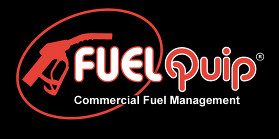What Is Real-Time Fuel Monitoring And How Your Business Can Benefit From It
There are a lot of company owners that require constant access to viable fleets. Purchasing cars for a commercial inventory is a major undertaking. Not only is this a costly effort from the very outset, but there is also a lot that businesses must do to keep continued costs under control. If you are asking the question, “What is real-time fuel monitoring?“, keep reading to find out if it is right for you.
Real-time is a term that indicates the immediate provision of information. This means that there is no delay between the collection of data and the time at which it is made accessible. For companies, this is a huge benefit given that they are always able to make highly informed decisions based upon the most recent data.
Fleet management services are used by businesses to streamline the process of owning, caring and using vehicles in a commercial capacity. This is often available as a form of software that tracks all aspects of maintenance and usage. When fleet drivers travel long distances, this software is also helpful for tracking their fuel use and purchases.
You might be interested in increasing the efficiency of your outfit. This is actually a very common concern among fleet owners particularly given the rising costs of gasoline and the fact that very few electric-powered options are available in heavy transport vehicles. By streamlining and carefully controlling their fuel costs, companies can make certain that it remains feasible to continue using these assets as part of their ongoing operations.
One data point that you can pick up when using these platforms is the frequency at which drivers are refueling. There are a number of helpful inferences that can be made with this info. For instance, you might want to know if your drivers are going out of their way to find accessible service stations, if their vehicles are using an excessive amount of gas and may be in need of tune-up and repair, and if your drives are paying more for fuel than they have to, among many other things.
The purchase and use of gas is just a tiny snapshot into the larger panoramic view of how your commercial autos are being used. As such, fuel monitoring is just one tiny portion of overall fleet management. The tools and resources that are used for tracking gas use are generally used in conjunction with a larger and more all-encompassing platform.
These tools can be especially helpful when companies are using their fleets for contracted work. With contract or for-hire work, gas is an expense that can often be written off or repaid. In order to obtain due recompense, however, contractors and other for-hire entities must be able to provide clear documentation of how and when fuel was obtained, and of how it was ultimately used.
Many businesses find that the costs of these solutions are more than worthwhile. In fact, over time, they generally pay for themselves. Not only are companies collecting valuable data on a daily basis and in real time, but they are also able to identify relationships, connections and problems that can be used to cut their costs while still ensuring a superior level of service on their end.


